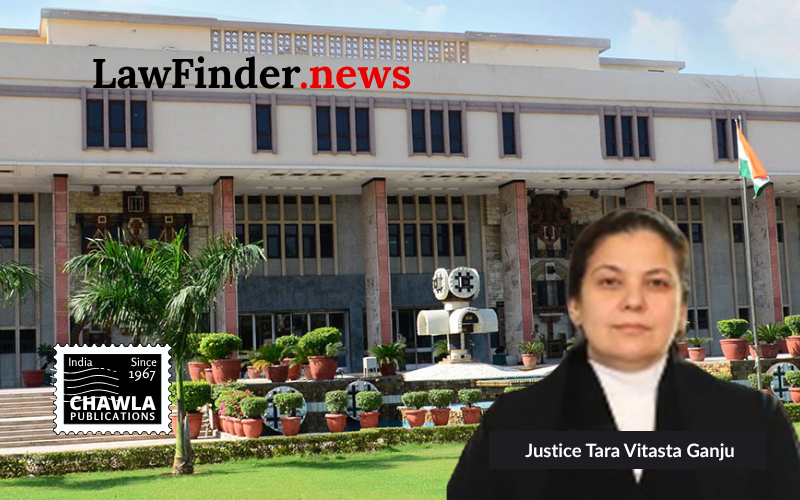High Court Upholds Trial Court's Rejection of Application Under Order VII Rule 11(d) CPC
In a recent ruling, the Delhi High Court, presided over by Justice Tara Vitasta Ganju, dismissed a petition filed by Krishna Devi challenging an order from the Tis Hazari Court. The petitioner sought to have a civil suit rejected on the grounds of being time-barred under Order VII Rule 11(d) of the Civil Procedure Code (CPC), 1908. The case involves a dispute over a property and a contested sale deed executed in 2003.
The suit, initially filed in 2004, seeks a declaration that the sale deed executed by Defendant No.4 in favor of Defendants No.1 to 3 is null and void, along with a decree for permanent injunction to prevent the dispossession of the plaintiff from the property. The petitioner argued that the suit was time-barred based on Article 59 of the Limitation Act, 1963, which stipulates a three-year limitation period for setting aside instruments.
The High Court, however, upheld the trial court's decision, emphasizing that issues of limitation often involve mixed questions of law and fact, which require proper pleadings, framing of issues, and evidence. This position aligns with the precedent set by the Supreme Court in cases like Balasaria Construction (P) Ltd. v. Hanuman Seva Trust and Others, which states that a suit cannot be summarily dismissed as time-barred without thorough examination.
Justice Ganju noted that the application under Order VII Rule 11 was only filed at the stage of final arguments, raising concerns that it may have been intended to delay the adjudication of the suit. The court also highlighted that the application did not originally include a challenge under Order VII Rule 11(a), and no new grounds can be introduced at the revision stage.
The High Court's judgment reinforces the necessity of examining suits on their merits and discourages attempts to dismiss cases prematurely on procedural grounds without adequate legal and factual scrutiny. The court directed the petitioner to pay costs of Rs. 25,000 to the respondent, recognizing the extended delay in the proceedings.
This judgment underscores the judiciary's commitment to ensuring that civil suits are decided based on substantive justice rather than procedural technicalities.
Bottom Line:
Application under Order VII Rule 11(d) CPC for rejection of plaint on limitation grounds cannot be sustained when limitation involves mixed questions of law and fact, requiring proper pleadings, issues, and evidence.
Statutory provision(s): Civil Procedure Code, 1908 - Order VII Rule 11(d), Section 115; Limitation Act, 1963 - Article 59
Krishna Devi v. Amolak Singh (Now Deceased), (Delhi) : Law Finder Doc Id # 2790198




